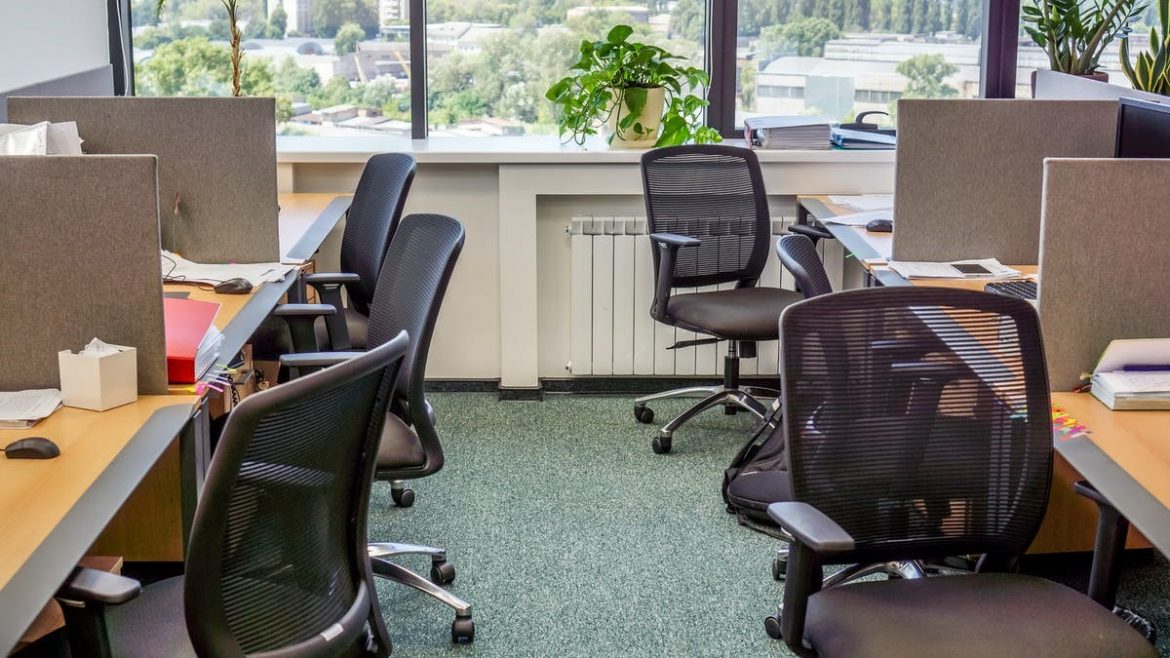By Dr Davison Todson Gomo
THIS topic has been focused on by the Government, scholars, business advocacy groups, policy makers and the entrepreneurs themselves. It is important to note that international organisations such as the World Bank, some United Nations affiliate bodies, other governments in Africa and sub-regional trade and business organisations have actively interrogated this topic in broad terms because of both the potential that SMEs have in influencing and contributing to the development of African economies including our own.

While the SMEs are seen as a key player in creating employment opportunities and reducing if not eradicating poverty, there is general and wide acceptance that this sector operates under a very difficult and often an unsupportive business environment due to a lot of difficulties embedded in their day to day business operating environment.
In order to do some bit of justice to the discussion, it is important to understand some of the general conditions and limitations that characterise the daily experiences of the operators or entrepreneurs in the SMEs sector right across different segments of the economy.
General conditions and limitations
Firstly, as a very general observation, it must be noted that most SMEs in developing countries face a sluggish growth of firms, low levels of financial development and stability, experience constrained access to financial services and often fail to obtain credit to finance their business plans and growth. Secondly, they face another set of challenges that simply make it extremely hard to grow their businesses at the pace they desire because of a hostile business environment.
Studies conducted by researchers, governments and some stakeholders have demonstrated that the absence of infrastructure at least as an enabler of sustainable business has resulted in most SMEs operating well below their potential and this condition has led to most of these businesses remaining stuck on the margins of success.
The other factors that have a bearing on the performance of the SMEs are the existence of high labour costs, lack of productivity that is generally associated with lack of entrepreneurial skills and sometimes poor decision making and judgment skills that result in poor risk assessment and opportunity identification.
Thirdly, although it is generally assumed that prior knowledge and experience in the area of business undertaken is key to success in running one’s business, research has proved that most entrepreneurs lack all round business skills particularly in relation to financial and cash flow management, marketing, and business planning among other factors.
Although there is no consensus yet, but a strong view is emerging and is gaining momentum that all the challenges identified so far notwithstanding, lack of a clear business model that guides the thinking, planning and actions of entrepreneurs may be the major cause of business failure.
Accordingly, the chances of success for a business must be predicated on a well thought out business plan. Planning allows the entrepreneur to assess all factors that threaten or could affect the success of the business well in advance to ensure business continuity in the long term.
EDUCATION 5.0
The development of business models must clearly be the responsibility of our tertiary institutions and in the recent past, it is heartening that the Minister of Higher and Tertiary Education, Innovation, Science and Technology Development has boldly introduced a new approach to education that promotes a strong orientation to education that produces graduates from the higher education institutions that can easily put theory to practice. This approach may be the missing link that might help to stop the collapse of many small businesses prematurely.
Those that make it must not necessarily remain small and struggling as if thus the permanent feature of SMEs. The idea is that they must contribute to national development through their own growth. Indeed, when education is appropriately designed and applied, it has the power to transform any institution, economy and general human ideas.
Is there a clear entrepreneurial development model?
The country recognizes the importance of the SMEs that is the reason why a full Ministry dedicated to the sector was created but despite their numbers, the contribution to the country’s Gross Domestic Product [GDP] is still very low.
At national level, employment creation is the number one goal given that the proportion of young people is preponderantly much higher than any other demographic group in the country. The argument here is that if the country developed a clear and robust entrepreneurial model that puts a high premium on creating business opportunities for young people, there is a real chance that such a move could easily contribute to the revival of the economy sustainably.
The debate on SMEs must be driven by a clear desire to upgrade the business practices of this sector at local level to enable them not just to operate effectively but to meet the exacting local and international standards and the changing tastes of consumers.
The current approach which regrettably, does not place the SMEs at the centre of economic and community renewal leaves the country faced with a prolonged problem of unemployment with most school leavers and tertiary and university leavers facing an uncertain future.
The initiatives and efforts at transforming the education system so that it can speak directly to the country’s development needs and linking education to the development of SMEs will produce a cadre of entrepreneurs that are resilient and can cope with changes that take place at local, regional and global level.
More work needs to be done to reverse the lack of participation in the economy by most of our scientists and engineers especially their direct involvement relying on their innovative and creative skills to produce tools and products for use and consumption at household and industrial level. The focus of the government in promoting inclusive growth and the recognition of the role that young people can play in bringing fresh ideas and this being supported by the establishment of a bank that focuses on the entrepreneurial needs of the youth could mark the beginning of a new and enterprising entrepreneurial class.
Assimilation of the Education 5.0 principle
The ubiquitous assimilation of the Education 5.0 principle will ensure that most graduates come out of the education system fully equipped with managerial skills and entrepreneurial production knowledge that prepares them well for the business world. There is no doubt that the world is changing at a fast pace and the need for continuous upgrading of knowledge and skills and adapting to new realities is an inescapable need.
Adaptation and resilience does not exist in a vacuum but is a product of learning an innovative approach to problem solving, the ability to notice changes and what causes them and readily adapting to new circumstances. In reality, such a system produces self-reliant entrepreneurs who have the capacity to develop own creativity through the study of entrepreneurship in a real-world setting.
The major problem facing the SMEs is sometimes the failure to see beyond an existing situation and being prisoners of a context shaped by traditions. Entrepreneurship is essentially about freedom, independence and hard work.
However, in most cases, government spends a lot of money on education but unfortunately; they produce people who look up to government for jobs instead of participating in creating jobs. The perpetuation of such an orientation hardly assists in creating entrepreneurs that can stay the course.
Record keeping
Is it possible that the country can successfully measure success stories of home – grown entrepreneurs and recount episodes of how they created staying power even in the face of several adversities? To answer this question well, there is need to have a record of how many start – ups on year to year basis say in the last two decades and in that period, how many survived and the possible factors giving rise to that?
Zimbabwe is a relatively newly independent country. At forty years with much of that time spent on prolonged fights with the western countries, it goes without saying that the conditions in the country simply did not support an environment conducive to business growth and development.
With the infamous and diabolic illegal economic sanctions and pervasive political blackmail, there was no chance of a snow ball in hell that businesses in general and SMEs in particular, would survive that toxic political and economic environment.
The emergence of the Second Republic with its emphasis on opening up the country for business and a serious engage and reengagement policy, coupled with political dialogue with internal political players, a new political and economic environment has emerged and if the momentum is sustained, could well be what is needed to create the right environment for business.
Creating the right environment
With the right environment created and to achieve a state where the SMEs can go ahead confidently, there is need to remove a culture or tendency that encourages people to rely on and look up to government to provide everything for them instead of providing their own solutions.
It is already well known that SMEs face challenges that can be easily removed by creative and progressive policy making provided there is commitment on the part of policy makers to close the gap between stated policies and directives and the reality on the ground. Very often, policy remains as a stated intention and never translates into real action thus impacting negatively on the intended beneficiaries.
Almost universally, SMEs experience shortage of capital, inadequate business premises, uncertain markets, high taxes and bureaucracy still remain major constraints to SMEs’ aspirations to expand their businesses and policy coherence and predictability is low.
The ideal situation is to support SMEs so that they become a breeding ground for home grown industries but it is not a walk in the park. The economic challenges of the recent decades and the general volatility in the global economy affects smaller and developing economies more than developed ones.
It is therefore of great importance that developing countries do everything possible to create policies that are sustainable and promote inclusive growth. An investment policy that is skewed in favour of big international companies and offers limitless incentives to foreign companies at the expense of SMEs prolongs the dependency of the local economy to predatory capital and weakens the capacity of SMEs to cope with global changes and to build safety nets for their survival.
In the final analysis, SMEs need to develop the capacity to read into economic trends and changes in the market place and technological developments and adapt their plans to ensure survival at the very least. There is need to accept that the “business as usual” attitude has to be a thing of the past. Everyone need to accept the reality of the new era and accordingly, institutions, businesses and the ordinary public need to embrace the new ways of doing business in Zimbabwe. Government has not shifted its position on that and SMEs like any other business sector need to continuously adjust to the new environment to enable them to survive.
Focus must be directed at new areas of growth and areas where government policy is seeking to maximize returns from its investment in public projects and other business initiatives.
SMEs must as a matter of focus look at the lead economic sectors such as agriculture, mining, manufacturing, tourism including services.
Of course, the assumption is that government will increase its support for private sector competitiveness, invest more money in education to develop competitive human capital and will disburse more funds to support devolution. The SME players must chase up opportunities that unfold from these government policy measures and investment and must be better prepared to manage challenges, opportunities and risks competently.
Adapting to Covid-19 challenges
One of the most daunting tasks is the ability of SMEs to adapt to COVID 19 challenges and to shift management behaviours to adjust to the new reality and methods of doing business.
Assuming that COVID 19 and the global business space remains cautious, the need to adapt and change business behaviour and practices will remain an area of major focus in managing business continuity and building a secure revenue base to ensure survival.
Most SMEs may need to consider broadening their product and service base, manage their cash flows better, reduce exposure to risks, find ways to increase productivity, negotiate timely delivery of supplies, may have to reduce credit to customers and even increase the use of part time workers in order to reduce the burden of overheads especially when the business environment is over laden with controls and regulations.
However, challenging business situations create huge opportunities for new services and products therefore, investing in research to generate new business ideas and providing solutions to challenges facing society will guarantee business survival and long-term success.
Creativity, innovation and continuous improvement of business systems and processes and balancing the relationship between inputs and outputs are the way to go.








